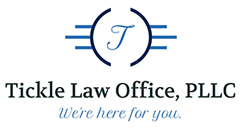By North Carolina law, persons are prohibited from operating a motor vehicle on any highway or public place while intoxicated, either due to alcohol or a controlled substance. A violation of this law leads to a driving while impaired (DWI) charge.
Normally, you’d think you can only get a DWI while driving. But did you know that you can also get a DWI even if you’re not actually driving?
Definition of “operator”
In the context of state traffic laws, North Carolina law defines a “driver” or “operator” as a person in actual physical control of a vehicle, which is either in motion or has its engine running.
By that definition, as long as the engine is running and you’re drunk or intoxicated, an officer can charge you with DWI; no vehicle movement is necessary.
Other considerations
There are other factors that a court and jury would consider in your DWI case, even if you claim that you weren’t driving when you were charged with DWI. This includes:
- Your actual location during the offense: Maybe your car’s engine was running, but police found you passed out drunk in the backseat of your vehicle. Would this trigger a DWI? The closer you are to being able to start and operate your vehicle, the more likely a DWI charge would stick.
- Your vehicle’s location: Where was your car parked when you claimed you weren’t driving? If the car was just in your own driveway during the offense, you may have a strong defense for your claim. North Carolina’s DWI laws specifically state that a DWI offense occurs only when the vehicle is on a highway, street or public vehicular area.
- Your state of consciousness during the offense: Were you asleep or awake when a police officer found you? This detail may affect how a jury decides whether you are in actual physical control of your vehicle.
So, yes. You can face a DWI charge even if your vehicle isn’t moving. The important thing to keep in mind is that the more likely you were to operate your vehicle while intoxicated, the more likely you would face a DWI conviction. Consider consulting a legal professional to understand all your defense options if you face charges.

